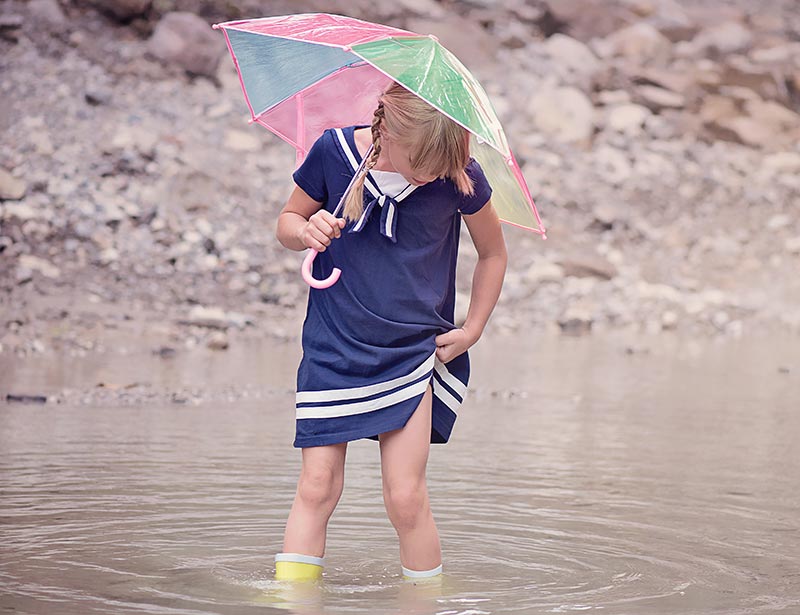Rain can be a great thing when it comes to replenishing our water sources and caring for our lawn and garden, but if you have water coming into your home every time it rains you could have a problem with your plumbing. Now that the fall season has arrived, we have already seen a lot of rain in the metro Atlanta area. And you are seeing too much of it when it comes through your foundation. When water leaks into your home through your foundation, your problem can escalate fast.
Foundation leaks can be very expensive. They let water into your basement, crawl space, or even your living area. They result from cracks in your foundation so it is important to find any cracks and verify the source of the water. Is it only rainwater getting through the crack or is there another problem, such as a fractured or broken water or sewer line in the ground?
Check the slope around your home.
Homes are built to keep water out. There should be a gradual slope around the outside of the home to cause water to flow away and thus prevent it from pooling close to the building. If rainwater is getting in through the foundation, the slope may have been changed due to a sidewalk, landscaping changes, or a raised bed. Walk around the outside of the building to verify the ground is correctly sloping away from the building.
Verify you don’t have a more serious problem.
Don’t assume that your leak is from the rain alone. If you don’t see a problem with your slope, you most likely have another problem. The roots of a tree can put pressure on the walls of your foundation that form cracks. Plus the roots provide a pathway for water to get into your home. Another problem could be water lines in your plumbing system that might be leaking.
If you suspect a water or sewer line leak in the ground, the leak may be low enough beneath the foundation slab or buried along the building walls of a basement so that it is not noticeable during dry weather. Many people find out about leaks from buried lines when they see a surprise increase on their water bill or when it rains.
A line leak can affect the saturation level and drainage around your foundation. If you have a line leak in the ground, even a small trickle of water can create a big problem. The leaking water can displace compacted soil beneath the foundation. And when not addressed quickly, the compacted soil beneath the foundation can loosen to fill with water and create heaving or pressure that causes cracks in the foundation. With time, those cracks will get larger and sections of your foundation could cave in.
Act fast when you have a line leak.
When it rains, that added saturation of the ground or lack of proper drainage can cause a foundation leak to be noticeable. A water or sewer line leak beneath the foundation is a plumbing problem that requires immediate attention. Besides getting water in your basement, crawl space, or living area, the leak can cause a damp place for toxic mold to grow. More rains will likely come this fall season in Atlanta so don’t wait.
A problem with line leaks underneath the foundation is that they might not be located immediately beneath the crack. Instead of cutting open random sections of your slab or digging a huge hole along your basement wall, High Priority Plumbing has non-invasive equipment such as line leak detectors and cameras that go inside lines to locate leaks accurately.
Find out how non-invasive line leak equipment can save you time and money, and minimize property damage. If you suspect a water or sewer line leak, contact our Atlanta office at 770-860-8110. Once located, we will provide an estimate to determine what is needed for repairing the leak, sealing the crack, and waterproofing your foundation.
